Discharge with odor at the end of menstruation. Causes and treatment of odors during menstruation
An unpleasant odor after menstruation may be a symptom of bacterial vaginosis, the most common infectious disease of the female genital organs. Its incidence reaches 80%, and the incidence of bacterial vaginosis does not depend on the age and race of the woman.
Less common reason the appearance of discharge with an unpleasant odor - specific genitourinary infections. These include mycoplasmosis, chlamydia, ureaplasmosis. Any of these conditions requires adequate treatment.
1 Causes of unpleasant odor
Constantly secreting a small amount is normal for a woman. Menstruation leads to a slight increase in the amount of mucus and an increase in odor; it is not unpleasant. But any woman can also develop bad-smelling discharge immediately after menstruation. The reasons for this may be lack of personal hygiene or the development of an infectious disease.

If a woman is not attentive enough to personal hygiene during menstruation, rarely changes hygiene products, stagnation occurs. bleeding on the walls of the vagina. Under the influence of body temperature, the blood begins to break down, emitting an unpleasant odor.
If a woman uses a tampon during her period, she may forget to remove it from the vagina. Within 24 hours, the tampon begins to decompose, emitting an extremely foul miasma. A dangerous consequence A tampon left in the vagina causes infectious-toxic shock, which causes the death of a woman.
In women with disorders menstrual cycle menstruation lasts longer or shorter than physiological ones. If your periods are short and scanty, many women leave one pad for a long time. As a result, blood, drops of urine, and other secretions accumulate on it, which together leads to the appearance of an odor. With long periods, spotting is often observed in the last days of menstruation. They consist of already coagulated blood, have a brownish color and a stagnant odor.
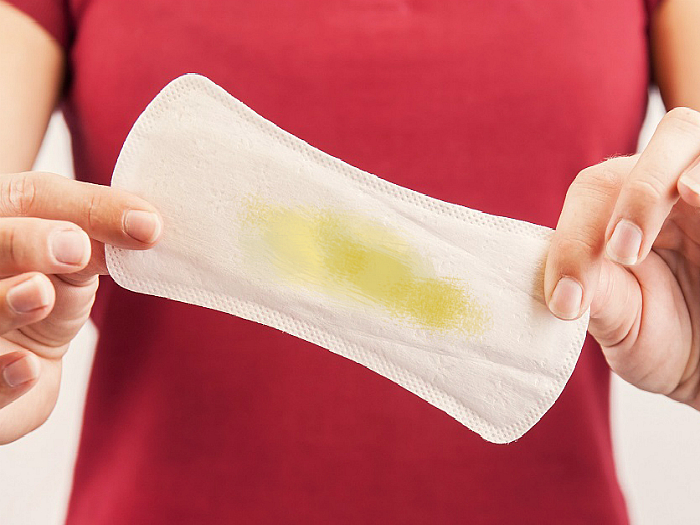
Menstruation is a process that is accompanied by weakening immune system and a decrease in the protective properties of the mucous membranes in intimate place. And blood is a good breeding ground for microorganisms. All this together increases the risk of developing specific and nonspecific diseases of the genital organs. The waste products of microorganisms always have an extremely unpleasant odor.
2 Infectious diseases
Infections that can cause copious discharge with:
- Nonspecific flora that causes;
- Ureaplasmosis;
- Candidiasis;
- Mycoplasmosis;
- Chlamydia;
- Trichomoniasis.

All of these infections, with the exception of bacterial vaginosis, are sexually transmitted. Moreover, in men they are asymptomatic in most cases. Discharge from the genital tract in women with these pathologies is constantly present, but after menstruation it especially intensifies. An increase in the amount of discharge is associated with the activation of pathogenic flora due to a temporary decrease in immunity.
Another reason for increased unpleasant odor after menstruation is urinary incontinence. Periodic excretion of even a small amount of urine mixed with menstrual blood quickly leads to their decomposition and the appearance of a sour odor.
3 Features of discharge in various diseases
The characteristics of discharge from the genital tract vary depending on the reason that caused its appearance:
| Disease genitals | Characteristics of the pathological process |
| Bacterial vaginosis | A nonspecific infectious disease caused by opportunistic flora. Develops when the number of lactobacilli decreases. The main symptom is the discharge of cloudy mucus from the genital tract with a pungent odor of rotten meat or rotten fish. The greatest amount of discharge is observed during the several days before and after menstruation. At the same time, intestinal dysbiosis develops, leading to stool disturbances. |
| Candidiasis | The discharge has a cheesy appearance and accumulates on the walls of the vagina. Their number is usually small. The smell is specific sour. Accompanied by severe itching and discomfort |
| Ureaplasmosis | The discharge is scanty, with a mild odor. Has a slimy character. Women are more concerned about subjective symptoms - and the urethra |
| Mycoplasmosis | Symptoms are minor. The discharge is scanty, has practically no aroma, it intensifies only during menstruation. In most cases, the discharge is clear or cloudy white |
| Chlamydia | Subjective sensations are expressed insignificantly. Discharge in moderate quantities, mucous, less often mucopurulent. The smell is not strong |
| Trichomoniasis | The infection is caused by Trichomonas and occurs in men without symptoms. In women, foamy purulent discharge appears, causing itching and. The labia are swollen and hyperemic. The smell of the discharge is pronounced, purulent. In severe cases, bleeding of the vaginal mucosa is observed |
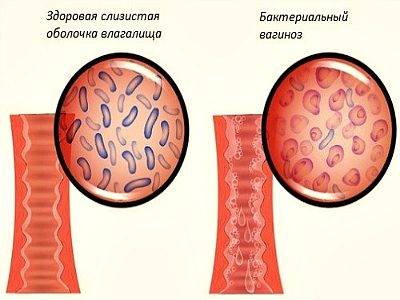
Any of the above signs is a reason to contact a gynecologist for examination and diagnosis of unpleasant odor after menstruation. Treatment must be completed in a timely manner before the infection leads to serious complications.
4 Diseases of internal organs
The smell after menstruation is caused not only by specific microbial flora. The following lead to its strengthening: inflammatory diseases internal genital organs, such as colpitis, vaginitis, cervicitis. They can be caused by vaginal dysbiosis, damage to the mucous membrane, endocrine pathology of the body, and insufficient hygiene of the external genitalia.
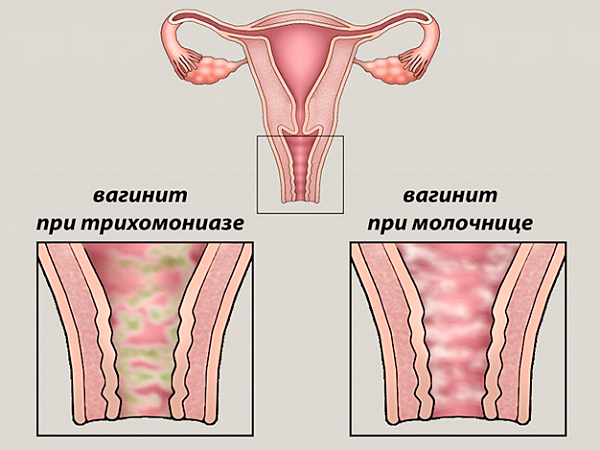
Such conditions are accompanied by burning and itching in the vaginal area, pain when urinating, and menstrual irregularities. The amount of discharge becomes significantly greater than normal, and it acquires a stagnant, unpleasant odor.
Endometriosis - a pathology of the endometrium - also leads to increased odor. With this disease, there is a release dark blood with pieces of endometrium that have a putrid odor. A similar condition is observed in cases of interrupted uterine or ectopic pregnancy.
An extremely dangerous condition that leads to a rotten smell is uterine cancer. When a cancerous tumor disintegrates, pieces of it are released along with blood. This mixture has an extremely unpleasant aroma of rotten meat. The discharge is abundant, dark red, with dense inclusions. This condition is observed already at the last stage of the disease.
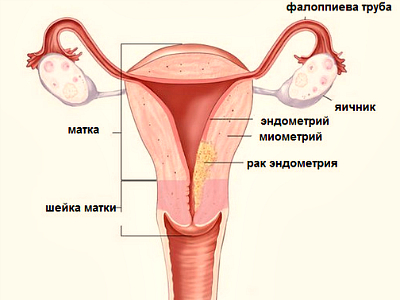
5 Treatment
Discharge with an unpleasant odor after menstruation is a condition that definitely requires treatment. Before prescribing it, it is necessary to find out the reason heavy discharge. For this you need a consultation with a gynecologist and dermatovenerologist.
After the examination, which consists of taking a smear from the vagina, appropriate treatment will be prescribed. If no diseases are detected, the woman needs to properly maintain genital hygiene, especially during menstruation. It is necessary to wash yourself daily using special gels - Lactacid, Saugella. Pads, even if your periods are light, need to be changed at least once every four hours.
You should choose hygiene products that contain a special absorbent layer that turns the liquid into a gel. This will prevent menstrual blood from breaking down and producing an odor.
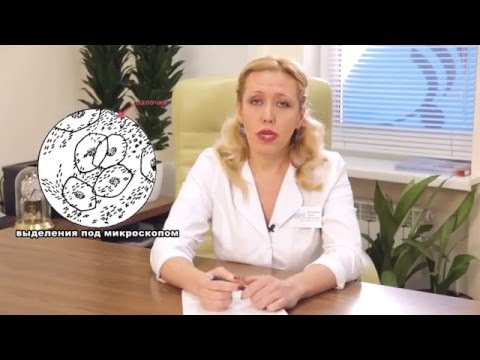
6 Conclusion
An unpleasant odor after menstruation is not an indicator women's health. This symptom indicates the development infectious process in the genitals. Any genitourinary infection leads to serious complications in the form of disruption reproductive function. Therefore, it is necessary to diagnose the disease in a timely manner and undergo appropriate treatment.
Besides infectious diseases genitourinary system, an unpleasant odor can be caused by serious pathologies - endometriosis, ectopic pregnancy, uterine cancer. The appearance of copious, unpleasant-smelling discharge is an indication to consult a gynecologist.
Every month a woman faces such a phenomenon as menstruation. The onset of the menstrual cycle is accompanied by the formation of bloody discharge, pain in the lower abdomen, and discomfort. Without exaggeration, we can say that the cycle not only makes adjustments to daily life, but also deprives a woman of her sex life. Of course, after some time, the woman gets used to it. All of the above changes are typical for every representative of the fair sex, however, not everyone experiences menstruation with an unpleasant odor. What is the nature of this smell? In this article we will tell you which phenomena are considered normal and which indicate pathological condition and why periods can stink.
Normal spotting have the smell of iron, so the presence of this kind of smell should not alarm a woman. In what cases does a stinky odor occur? So, the foul odor during menstruation is caused by the following disorders:
- poor hygiene;
- bacterial vaginosis;
- thrush;
- other pathologies, including uterine cancer, bacterial inflammation of the uterine mucosa.
Nature of smell
Every month a woman deals with cyclical changes, which are called critical days. According to experts, the ideal cycle length is 28 calendar days. However, according to statistics, only 15 percent of women can boast of such a trend.
As noted above, the smell of menstruation is always present. What explains this phenomenon? The menstrual cycle starts after the fertilized egg is attached to the prepared site. Female hormones - progesterone and estrogen - are responsible for the preparation of the ovaries and uterus. In the uterus, the endometrium and inner layer grow. Their growth is necessary for the placenta, for nutrition and formation of the child. In the absence of fertilization, all efforts come to light.
The process of endometrial exfoliation is accompanied by rupture of blood vessels. This process lasts until the muscle layer contracts. The dark shade and thickness are nothing more than pieces of the endometrium, and the smell is the result of the presence of blood. Thus, the presence of the smell of raw meat and iron have the same origin - the action of iron, which is located in the erythrocyte.

An interesting fact is that in one cycle a woman will use only 50-100 grams of blood. Menstrual blood consists of secretions secreted by the uterine glands. In addition, the blood includes small elements of the endometrium and epithelial cells from the vagina. If the woman is actively moving, then lumps in the liquid are not observed. Otherwise, a passive lifestyle leads to the accumulation of blood and the formation of clots. This phenomenon is considered normal and should not cause concern for women.
A very large percentage of women note the presence of a disgusting odor during the menstrual cycle. The odor occurs due to the mixing of secretions with vaginal microorganisms.
Normal position
The menstrual cycle refers to the process of peeling off the inner lining of the uterus. Life healthy women accompanied by a strong odor, similar to the smell of meat or a metallic tint. As a rule, it is mild and characterized by the absence of unpleasant sensations. Using hygiene products for more than 4 hours leads to an increase in the intensity of the proliferation of microorganisms. The smell can also occur due to lack of prolonged showering. The result of this condition is a putrid smell. Getting rid of odor is only possible if all hygiene procedures are followed. During menstruation, it is recommended to wash yourself at least 3 times a day and change pads every 4 hours. As for changing tampons, it is recommended to change them every 2 hours.
Sign of pathologies
The presence of an unpleasant odor can occur against the background of many factors that are not related to the stable functioning of the female body.

In some cases, women note that their periods are accompanied by a rotten smell related to fish. It is worth noting that this kind of phenomenon indicates bacterial vaginosis. This disease is also called vaginal dysbiosis. The pathology develops due to the predominance of conditionally pathogenic flora in the vaginal environment. This kind of fishy smell also occurs after the end of the menstrual cycle. Typically, this aroma is activated at the end of menstruation. The smell during menstruation may also have a sour tint. As a rule, it occurs against the background of a condition such as Candidiasis. Thrush is caused by fungi of the genus Candida and is accompanied by itching and burning of the genitals. At the end of the cycle, curd clots enter a woman’s life. Regardless of the nature of the odor, any changes require intervention from a gynecologist.
Solving the problem
Despite the fact that menstruation has its own specific smell and is considered normal, there are several methods to reduce the unpleasant smell of menstruation.
So, the first method involves the use of natural personal hygiene products. Experts insist on using pads and tampons that are based on natural elements, consisting of natural ingredients. Moreover, these days it is advisable to wear cotton underwear, and use products based on herbal decoctions as wash products.
The second method is based on the use of hygiene products that do not contain fragrances. These types of components not only do not eliminate odor, but also contribute to the spread of bacteria.
The third way is to shower regularly. It not only refreshes, but also allows you to get rid of unnecessary odors. One important detail to keep in mind when taking a shower is that the vagina does not need to be washed from the inside. Such actions can dislocate the vaginal microflora.

Slight changes in consistency vaginal discharge or smell during the menstrual cycle require participation not only from the woman, but also from a specialist. As you know, it is easier to prevent any disease or pathological change than to treat it for a long time.
The presence of other symptoms forces a woman to consult a gynecologist and undergo an examination. Taking tests allows you to determine the exact cause of the pathology. Only after this the specialist prescribes etiological therapy and symptomatic treatment.
Useful summary
In conclusion, let's summarize. As practice shows, the causes of unpleasant odor during menstruation are different and have their own nature. In this regard, to determine the exact reason why your periods smell, you need to seek help from a specialist. Only a thorough study of the problem and a complete medical examination. Only an examination gives the right to prescribe treatment. If your periods stink and are accompanied by unpleasant symptoms, then this is serious reason visit a gynecologist. Remember this, dear women!
Actually female reproductive system- this is not only a complex, but also a rather fragile mechanism that requires regular attention.
The ancient Greek philosopher Socrates was right when he said one clever phrase: “Health is not everything for a person, however, everything without health is zero.” Dear women, remember this phrase and pay attention to any deviations in time.
From the moment she reaches puberty, every girl experiences discharge from the genital tract, which in itself is a physiological process. What kind of discharge this is and why it occurs, we will try to figure it out below.
Vaginal discharge, like the menstrual cycle itself, undergoes complex evolutionary changes every month under the influence of reproductive hormones (estrogen and progesterone).
What secretion is normally released from the vagina?
Vaginal secretion, by its nature, can be divided into several types, corresponding to different periods of the menstrual cycle and the predominance of one or another hormone during this period.
- the first half of the cycle - includes the time of predominance of the hormone estrogen and lasts 11-14 days, the discharge has a mucous, transparent appearance and gradually increases in quantity by the time of ovulation, has no odor;
- ovulatory period - occurs in the middle of the cycle, when the egg matures and leaves the ovary. At this time, the secretion is similar to the discharge in the first half of the cycle, however, at this time, scanty dark brown inclusions may appear, appearing at the moment of rupture of the follicle;
- the second half of the cycle is characterized by the predominance of progesterone, at this time the discharge becomes thicker and more viscous, and its quantity gradually decreases and before menstruation it can practically disappear;
- period of menstrual bleeding - characterized by the appearance of physiological “bleeding” from the girl’s genital tract. Menstrual flow consists of blood, mucus and epithelial tissue uterine mucosa.
Characteristics of menstrual bleeding:
- lasts 3-7 days;
- more intense in the first days;
- physiological blood loss within 40-60 ml;
- The discharge is bloody, red or scarlet in color, and has a slight “metallic” odor.
